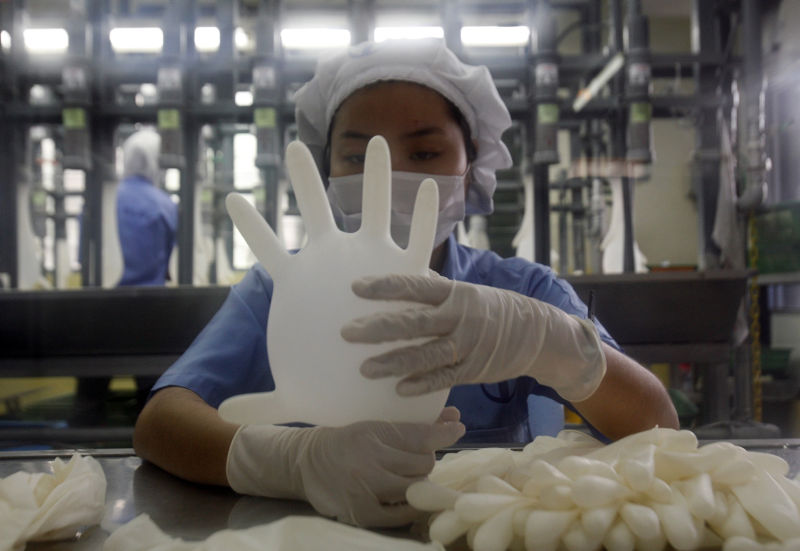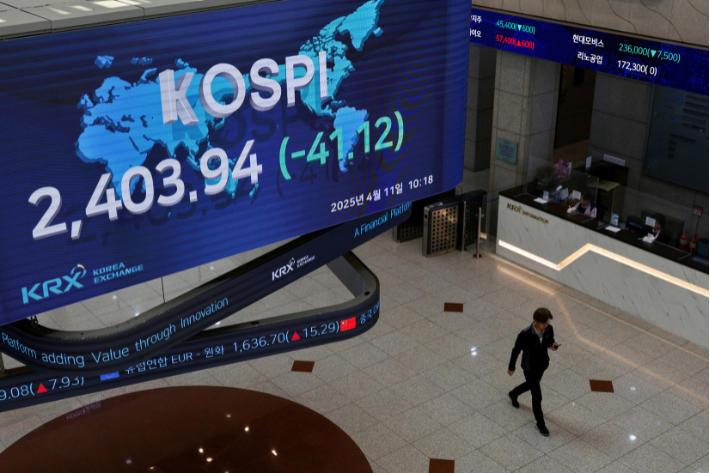Shares in Malaysia’s second-largest personal protective equipment (PPE) maker plunged more than 10% on Thursday after the US banned import of its products over allegations of forced labour.
Kuala Lumpur-listed shares in Supermax Corporation fell more than 10.2% to 2.02 ringgit in late morning trading on Thursday.
CBP issued a Withhold Release Order – which prevents unloading at US ports – against Supermax Corporation Bhd and its subsidiaries based on information that reasonably indicates their use of forced labour in manufacturing operations. The agency said it had identified 10 of the International Labour Organization’s indicators of forced labour during its investigation.
“U.S. Customs and Border Protection (CBP) officers at all US ports of entry will detain disposable gloves produced by Supermax Corporation Bhd’s wholly-owned subsidiaries, Maxter Glove Manufacturing Sdn Bhd, Maxwell Glove Manufacturing Bhd, and Supermax Glove Manufacturing,” the CBP said in an announcement on its website.
President Joe Biden’s administration “continues to make clear that products made in whole or in part by forced labour will not be allowed into the” US, said homeland security secretary Alejandro Mayorkas.
“This Withhold Release Order will help protect vulnerable workers,” said Troy Miller, CBP Acting Commissioner. “CBP is a global leader in forced labor enforcement, and we will continue to exclude products made by modern slavery from entering into the United States.”
Increased demand
The coronavirus pandemic has increased demand for rubber gloves, of which Malaysia is one of the largest producers. Before the pandemic, the global demand for rubber gloves was estimated at 300 billion pieces in 2020. With the outbreak of Covid-19, the demand for rubber gloves has seen a projected 20% overall increase, while demand for medical-grade rubber gloves has grown by 57%.
Employers rely heavily on migrant workers from lower-income Asian countries, such as Indonesia and Myanmar. The UK-based Modern Slavery & Human Rights Policy & Evidence Centre, said the pandemic has worsened conditions in Malaysian glove factories.
In a recent report on Malaysia’s rubber glove industry, the International Labour Organization (ILO), a UN body, said migrant workers, who make up a significant proportion of the workforce, including in the production of medical gloves, “remain vulnerable to unfair recruitment practices, confiscation of passports, withholding of wages, forced labour, excessive working hours, poor occupational safety and health practices and inadequate living conditions”.
The ILO estimates that 25 million workers suffer under conditions of forced labour worldwide. “This exposes vulnerable populations to inhumane working conditions … and exposes consumers to unwittingly supporting unethical business practices,” the report noted.
In March, the US restricted imports of gloves made by Top Glove, the world’s biggest manufacturer, over forced labour issues. The order was largely rescinded in September after the CBP said Top Glove had changed its practices.
“CBP modified a finding after thoroughly reviewing evidence that Top Glove has addressed all indicators of forced labour identified at its Malaysian facilities,” CBP acting commissioner Troy Miller said at the time.
READ MORE:
Malaysian Firms in Crosshairs Again as Canada Probes Forced Labour Claims
Top Glove Fired Whistleblower Before Virus Outbreak
Hong Kong-US WTO Dispute Sparks Frictions Amid Hurt Civic Pride
























